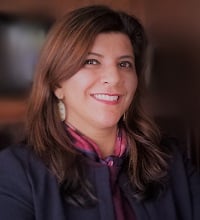 Patients are the heart of clinical research. It is important to understand factors affecting the patient outside of the clinical trial setting to better understand the disease, patient, and caregiver. Patient advocates bring non-scientific viewpoints, incorporating their own knowledge and experience and that of family members and other patients, into research to help make medical advances more timely and efficient for people affected by rare diseases. Patient advocates provide insight into how information can be utilized to enhance drug development. It truly is the advocate who brings the patient “voice” to research through their own rare disease journey.
Patients are the heart of clinical research. It is important to understand factors affecting the patient outside of the clinical trial setting to better understand the disease, patient, and caregiver. Patient advocates bring non-scientific viewpoints, incorporating their own knowledge and experience and that of family members and other patients, into research to help make medical advances more timely and efficient for people affected by rare diseases. Patient advocates provide insight into how information can be utilized to enhance drug development. It truly is the advocate who brings the patient “voice” to research through their own rare disease journey.I look forward to the NORD Rare Summit each year as it gives me the opportunity to connect with patient advocates and truly understand the patient “voice” represented. It is a time to reflect on the work all of us do in the rare disease community whatever area we work in – be it drug development, clinical research, regulatory compliance, or patient advocacy. It is a wonderful opportunity to collaborate as a community, learn from one another, and most importantly return to our work with a renewed focus and passion for advancing treatments for rare disease patients.
This year’s Summit will be held in Washington D.C., on October 21-22, bringing together stakeholders from across the rare disease space, including representatives from the FDA, NIH, orphan drug development industry, and most importantly, members of patient advocacy groups.
Following the NORD Summit, I will be attending the Neuromuscular Drug Development Summit (NMD) in Boston, Oct. 25. I will be leading a panel on the topic of “Patient Advocacy Partnerships to Improve Real World Evidence (RWE) in Neuromuscular Drug Development.” Understanding the factors affecting the patient outside of the clinical trial setting to better understand the disease, patient and caregiver, can be done by integrated RWE and through patient advocates. The panel will include patient advocates sharing perspectives on what information can be learned and how it has been successfully incorporated into drug development.
For any stakeholder in rare disease research or patient care, it really is imperative to not only understand the patient, and their journey to diagnosis and treatment, but also to take time to listen to the caregiver’s perspective. Unfortunately, for many patients, it takes years to find a diagnosis. For many, there is no diagnosis. We have heard the saying in medicine, “When you hear hoofbeats, think HORSE, not zebra.” To a clinician, this means to look for the obvious diagnosis, not the rare one. But sometimes what we encounter is a zebra. In this community, the zebras – or the rare – are common, but their experiences are very unique. Every patient and patient advocate has an incredible story, and I am proud to be an advocate for the rare disease community within the drug development space.
To learn more about UBC, click here and contact us to find out how UBC can help you do more for your patients with rare diseases.